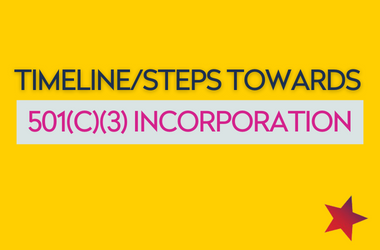What is a LLC in the Performing Arts?
Definition of LLC
A Limited Liability Company (LLC) is defined as a legal business entity that limits the company’s members from risk of loss. The owners of an LLC are usually referred to as “members,” as the structure is more of a hybrid between a corporation and a partnership or sole proprietorship. The LLC designation means that the private assets of an LLC’s owners and members are protected if the company fails, and only the amount they have invested in the company is at risk. Similar to a S-corp, LLCs also avoid double taxation. By default, an LLC is taxed as a pass-through entity, similar to an S Corp. However, an LLC can also choose to be taxed as a sole proprietorship (for single-member LLCs) or a partnership. Additionally, an LLC can elect to be taxed as a C Corporation. States determine what types of entities can be part of an LLC, and not all types of organizations can become an LLC. Most states do permit a “single-member” LLC, or those having only one member. Compared to S Corps, LLCs typically have less formalities and administrative requirements. S Corps must hold regular shareholder and director meetings, keep minutes, and follow certain corporate governance procedures, and LLCs can enjoy more flexibility in their internal management and decision-making processes.
Many Performing Arts Entities are an Ideal Fit to Become LLCs
LLC’s are a great business structure option for small budget artistic entities that want to avoid double taxation but still gain the benefits of a corporate liability protection. The LLC structure is ideal for companies that are owned and managed by a small number of people, or a single owner, and do not plan to go public or seek investment from venture capitalists or angel investors. You could also consider the LLC structure if you want to take advantage of pass-through taxation, where the profits and losses of the business are passed through to the owners and reported on their personal tax returns.
Related Resources
Timeline and Steps Towards 501(c)3 Incorporation
Timeline and Steps Towards 501(c)3 IncorporationIncorporating as a 501(c)3 nonprofit organization can be a lengthy and complex process. Below is an outline of the general steps and timeline toward achieving non-profit status. We recommend working with a lawyer to...
Performing Arts Grants Database Listings
Grant Database Listings for the Performing ArtsBelow is a list of websites serving as databases for funding sources. If you’re interested in applying for a performing arts grant, filter through these organizations' grant listings to research prospective funders....
What Do I Need to Apply for Fiscal Sponsorship?
What Do I Need to Apply for Fiscal Sponsorship?The specific requirements for applying to different fiscal sponsorship programs will vary depending on the nonprofit that is offering fiscal sponsorship. There is no downside to contacting a prospective fiscal sponsor...



